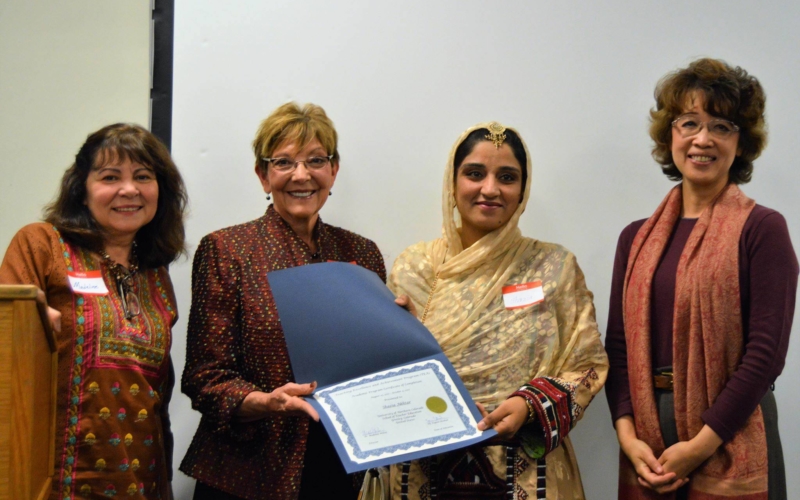Shazia Akhter Baloch is a Human Rights Activist and a Teacher from Turbat, Balochistan. She participated in the Teaching Excellence and Achievements (TEA) program through which she visited the United States. The following is her story as an exchange participant in the United States where she experienced a completely new culture, learned various teaching methodologies and made many friends for a lifetime.
How did you manage your academic career being a woman in Baloch society?
It is the irony of fate that it is very difficult for women to get an education in every male dominant society. Unlike others, I was too discouraged and criticized on several occasions. Today, the women of our society are more independent. However, back in 2000, it was not the same case. It was never easy for me to study at the University of Balochistan in Quetta as it had a co-education environment but fortunately, my parents stood by my side and encouraged me to carry on my education. Hence, it paved the way.
Were you inspired by any woman around you?
Every female is the source of inspiration but personally, I am inspired by my own self because I respect myself and want myself to be a source of inspiration for others.
How do you compare the Baloch society to the Western society when it comes to gender equality?
Female around the globe have dignity and respect. Both the society differ from each other greatly. We have different cultural norms and values but in a broader sense, the western society provides more space for women to be independent and confident to achieve any goal they wish to. They promote gender equality.
You wore a Balochi dress in the USA, how was the response when your American friends saw your dress?
Both the American fellows and the Pakistani delegation absolutely loved my dress. The Balochi dress, for me, represents our pride and honor. As the TEA is an educational and cultural exchange program, I was delighted to promote the Baloch culture as I do back home in Pakistan.
From your experience with women in the US, which of your observations can be implemented to improve the lives of Baloch women?
There are several components, however, the foremost important is the education. I believe, just the in the United States, women in Balochistan must be provided equal opportunities to pursue a quality education or to lead a professional career.
How do you compare the American and Pakistani education system?
They have student-centred learning whereas we have teacher-centred learning. They are equipped with educational tools while we do not even have the proper educational infrastructure yet.
After visiting the United States, what would you like to do for the women in your community?
I aim to work for girls’ education and elimination of child marriages from my community. When girls are supposed to get an education, they are forced into marriages which puts an end to their education and traps them in a cycle of poverty. I will work to campaign against such ill practices so the children in my community have a better future.
As a woman in a Baloch society, what challenges did you encounter while arranging activities for social causes?
As of now, I have not faced any challenge that I would count as a hindrance, but, yes, there are a few cultural limitations which are gradually changing for better.
Any message you would like to share with Baloch women?
Be educated, know your rights and most importantly, be the source of inspiration for women in the Baloch society.
Shazia now teaches at a Government Girls Model High School in Turbat, Balochistan and aims to do Master’s in Education. Shazia plans to focus her work to end child marriage from her community. She believes that a child marriage violates girls’ rights to health, education and opportunity. It exposes girls to violence throughout their lives, and traps them in a cycle of poverty. Shazia’s interview was initially recorded by AK Baloch in Turbat and was later shared with the Pakistan-U.S. Alumni Network (PUAN).
The Teaching Excellence and Achievement (TEA) Program for Pakistan will provide Pakistani teachers from government schools with unique opportunities to develop expertise in their subject areas, enhance their teaching skills, and increase their knowledge of the United States.






